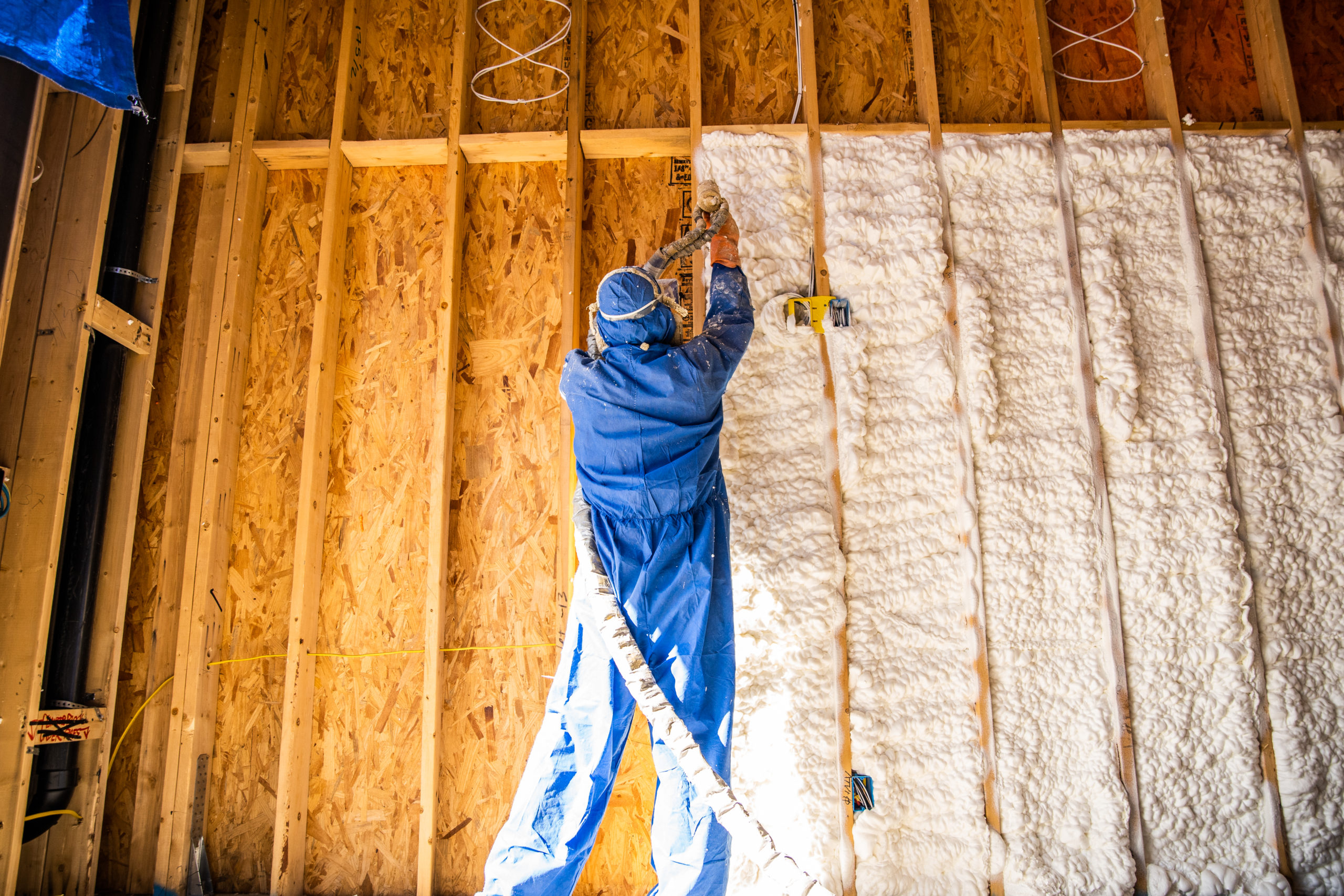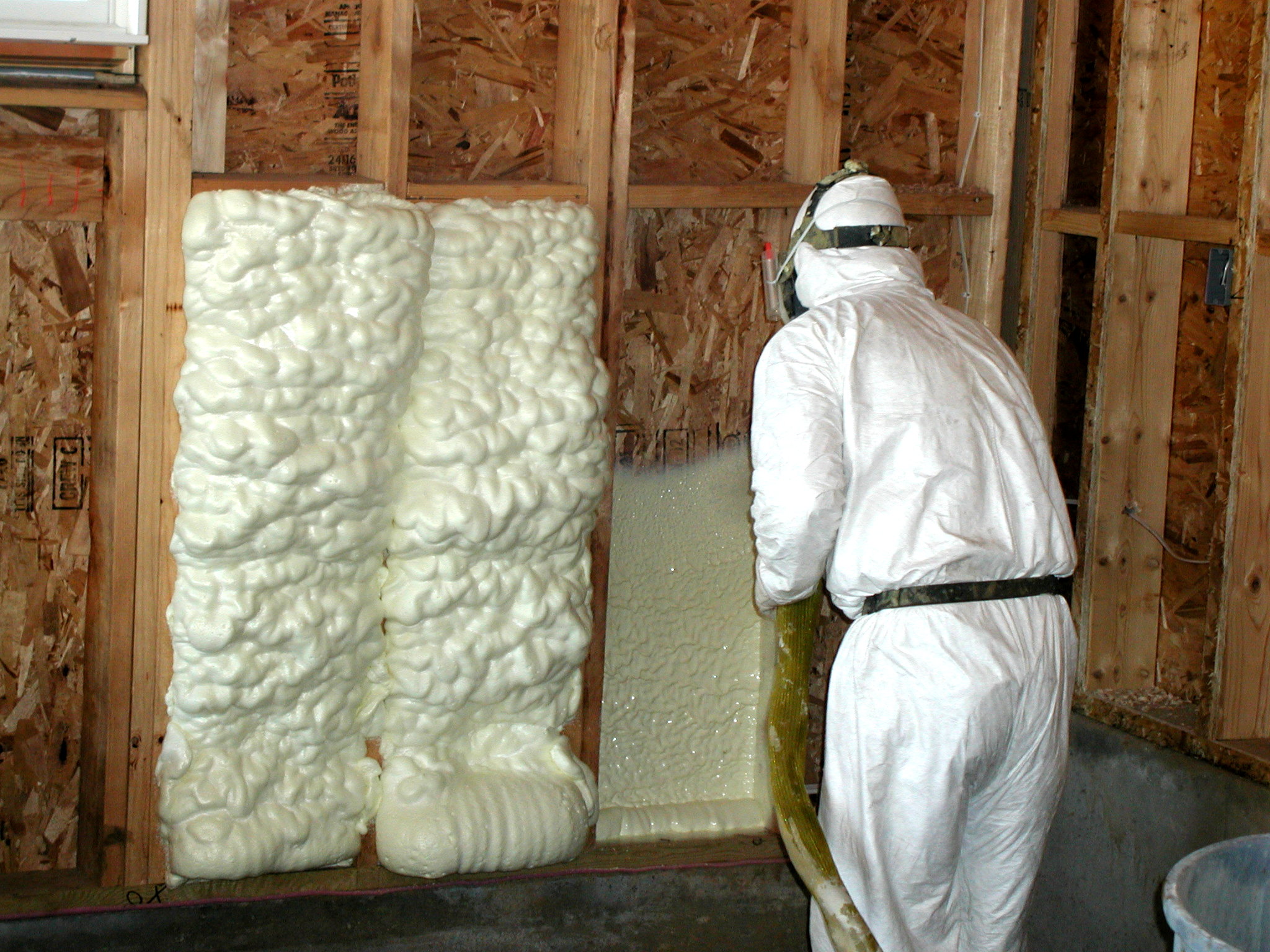Selecting the Right Type of Spray Foam for Your Insulation Demands
Exactly How Spray Foam Can Enhance Power Efficiency in Any Kind Of Structure
Spray foam insulation has emerged as a pivotal remedy for enhancing energy performance across different structure kinds. By developing an airtight seal that reduces air leakage, it properly controls indoor climates while substantially lowering heating and air conditioning costs. In addition, its excellent R-value and moisture-resistant homes add to lasting energy cost savings and improved building durability. As homeowner increasingly look for lasting options, the implications of spray foam insulation extend beyond simple energy financial savings. The full extent of its advantages, nonetheless, warrants a more detailed evaluation of how it can change energy administration strategies in both commercial and household setups.
Understanding Spray Foam Insulation
Spray foam insulation is increasingly acknowledged for its premium thermal performance and flexibility in various applications. Composed mainly of polyurethane, this insulation material is used as a fluid that broadens upon get in touch with, loading voids and creating a seamless barrier. This special building enables spray foam to adapt irregular surface areas, making it an ideal choice for both residential and industrial structures.

Application of spray foam insulation is commonly carried out by qualified experts using specific tools, guaranteeing ideal efficiency and safety and security - Spray Foam. The healing process is quick, enabling fast setup and minimal disruption. Therefore, spray foam insulation is progressively being utilized in new building and retrofitting tasks due to its capacity to boost architectural honesty while enhancing general energy performance in structures
Advantages of Energy Effectiveness
Energy performance plays a critical duty in minimizing functional expenses and lessening ecological impact throughout various industries. By optimizing power usage, house owners and companies can attain considerable cost savings on utility expenses, which directly boosts monetary performance. Reliable energy intake suggests much less dependence on fossil gas, thus adding to a decrease in greenhouse gas emissions and promoting a much more sustainable setting.
Furthermore, energy-efficient structures usually experience raised residential or commercial property worths. As power prices climb and sustainability ends up being a top priority for customers, homes with enhanced energy performance features are much more appealing on the market. This fad encourages investment in energy-saving modern technologies, which can better drive advancement and financial growth.
Along with monetary and ecological advantages, power effectiveness can additionally enhance the general convenience and health of indoor rooms. Correct insulation and efficient cooling and heating systems assist preserve regular temperatures, reducing drafts and humidity levels, which consequently can result in far better interior air quality.
Ultimately, the advantages of power efficiency prolong past immediate cost savings, fostering a resilient economy, advertising environmental stewardship, and enhancing the lifestyle for owners in any kind of structure.
Exactly How Spray Foam Functions
Commonly used as a liquid, spray foam broadens swiftly upon call with surface areas, creating a solid obstacle that efficiently seals splits and voids. This unique building is because of its chemical composition, largely including isocyanates and polyols, which react when mixed to create a foam that fills spaces and adheres to different materials, consisting of steel, concrete, and timber.
As soon as applied, the foam increases to several times its initial quantity, making sure a limited seal that protects against air leakage. This process significantly lowers thermal connecting, which takes place when warmth transfers through products, resulting in energy loss. The foam's high R-value, an action of thermal resistance, adds to enhanced insulation by minimizing warmth transfer between the Extra resources inside and exterior settings.
Additionally, spray foam is resistant to wetness and pests, further enhancing its efficiency in maintaining power performance. Its application can be tailored to various areas, consisting of attics, walls, and crawl areas, optimizing insulation throughout a building. Spray Foam. On the whole, the innovative layout and application approach of spray foam make it an efficient service for improving power performance in any type of structure, resulting in reduced power costs and an extra lasting constructed atmosphere

Applications in Different Buildings
Countless applications of spray foam insulation can be discovered throughout numerous structure kinds, enhancing power effectiveness and comfort. In residential homes, spray foam is commonly used in attics and wall surfaces to create a smooth obstacle against air leaks, considerably lowering home heating and cooling needs. This application is specifically useful in older homes, where typical insulation might be insufficient.
In commercial buildings, spray foam insulation is used to roof covering systems and outside walls, which helps to enhance thermal performance and protect versus moisture breach. Its lightweight nature makes it an excellent option for retrofitting existing structures without adding significant weight. In addition, spray foam can be used in commercial settings to shield pipes and storage space tanks, preserving temperature control for sensitive products.
Institutional buildings, such as healthcare facilities and schools, gain from spray foam insulation by guaranteeing a regular interior environment that sustains occupant comfort and wellness. The versatility of spray foam permits it to adjust to different building sizes and shapes, making it a recommended option for designers and building contractors seeking efficient insulation remedies. In general, spray foam insulation works as an essential element in attaining energy-efficient buildings throughout all fields.
Long-Term Cost Savings
Spray foam insulation provides considerable long-lasting price financial savings for structure owners and passengers by minimizing energy intake and lowering energy expenses. By supplying a superior air seal, spray foam decreases the seepage of outside air, thus improving the thermal efficiency of a building. This leads to a lot more efficient heating and cooling down procedures, which can result in substantial reductions in energy expenses in time.
In enhancement to instant financial savings on energy costs, the longevity and long life of spray foam insulation add to its economic benefits. Unlike typical insulation materials, which may droop, resolve, or deteriorate, spray foam maintains its performance for decades, decreasing description the requirement for regular substitutes or repairs. This durability converts to lower maintenance expenses and less interruption for occupants.
Moreover, buildings furnished with spray foam insulation often enjoy an increase in residential or commercial property value, making them more attractive to possible go to this website customers or renters. As energy effectiveness ends up being progressively prioritized, residential or commercial properties with effective insulation options attract attention on the market. Ultimately, the integration of spray foam insulation not only boosts convenience however also represents a calculated financial investment that produces significant economic advantages over the long-term.
Final Thought
Finally, spray foam insulation acts as a vital part in enhancing power performance throughout diverse structure types. Its ability to develop a seamless obstacle versus air leakage, incorporated with high R-values and moisture-resistant buildings, considerably reduces energy intake and linked expenses. The implementation of spray foam not only adds to regular interior temperature levels but additionally boosts home value, highlighting its function as a prudent financial investment for both domestic and industrial residential properties.
Spray foam insulation has actually emerged as a critical option for boosting power performance across numerous structure types. Spray Foam. As an outcome, spray foam insulation is progressively being employed in brand-new building and retrofitting jobs due to its ability to boost architectural stability while improving general power effectiveness in structures
In general, the cutting-edge layout and application technique of spray foam make it a reliable service for enhancing power efficiency in any kind of structure, leading to lowered energy prices and a much more sustainable built atmosphere.
Countless applications of spray foam insulation can be discovered across various structure types, improving energy performance and comfort.In verdict, spray foam insulation serves as a crucial part in boosting energy performance throughout varied structure types.